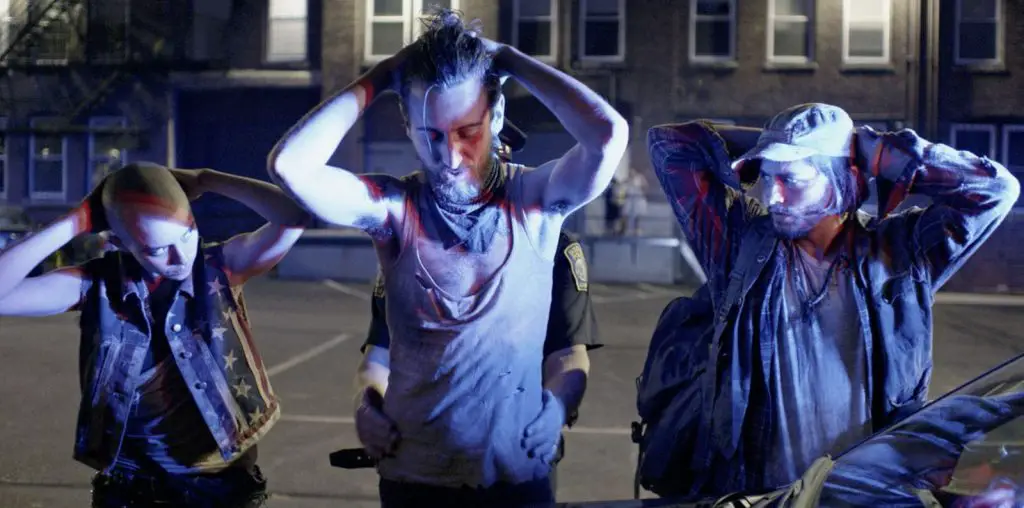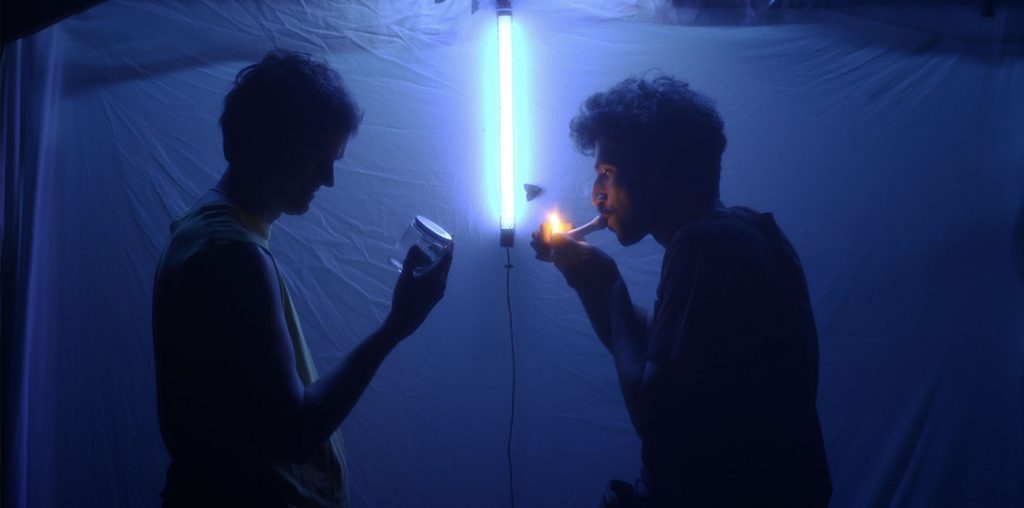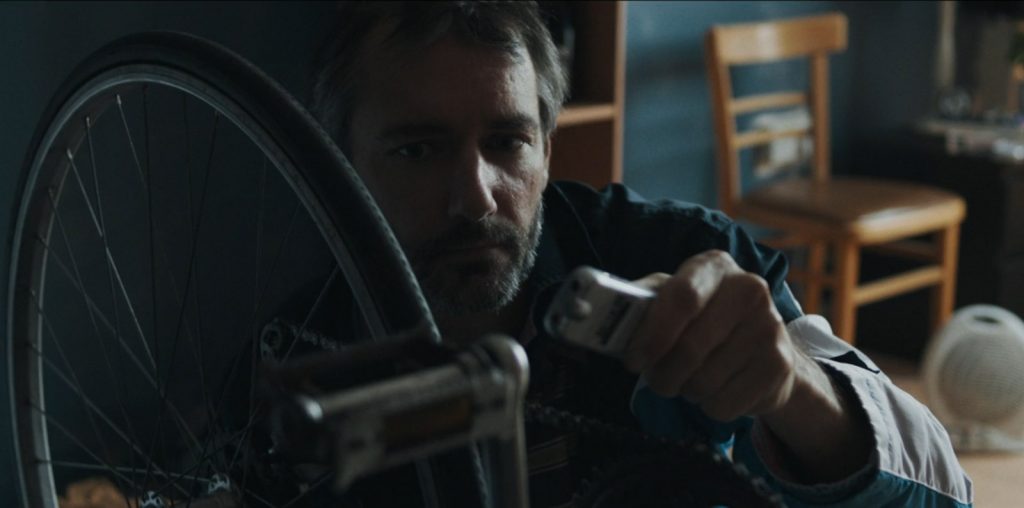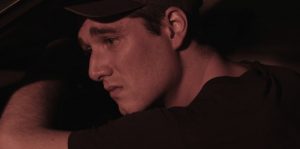
After The Night With Valerie begins with Layne (Sam Stinson) hanging out at a diner with his friend, Nate (Jordan LeuVoy). Later on, at a bar, he hooks up with a young woman, and when he wakes up the next morning, it is five years later. Layne is now married to Jess (Carly Christopher), a woman he does not remember meeting, much less falling in love with… and they have a child together, Winslow (James Christopher).
Now, Layne is seeking to piece his life together, so he calls on old friends, even those he wronged in some way. As the puzzle that is his life begins to form fully, scenes are repeated, either extended from before or slightly changed in some way. What caused the amnesia? Will Layne come out the other side a better man, or will he remain broken to some degree?
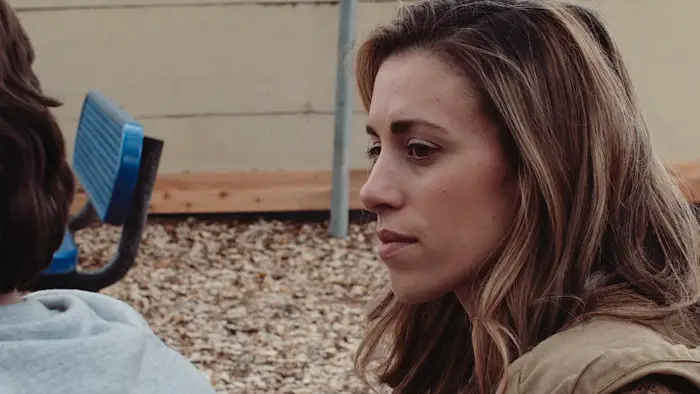
“…he hooks up with a young woman, and when he wakes up the next morning, it is five years later.”
After The Night With Valerie is Austin, Texas-based writer-director Alex M. Garnett’s third feature in a decade, and it is nothing if not ambitious. Let’s start with what does work and go from there. The most significant point in the film’s favor is its cast. Everyone does a tremendous job. Carly Christopher’s love for and absolute frustration for Layne, and his strange predicament, feels authentic and more than just the put-upon spouse role. She and Stinson share an easygoing chemistry that truly shines in the scenes of their first few meetings.
Stinson is brilliant as the confused, unsure Layne. In the modern sequences, he is reserved and quiet, while in the past, his memories (possibly false ones) he allows his passions to be more evident. LeuVoy as Nate has a largely thankless role, but he is fine in it, coming across as genuinely wanting to encourage his friend. When that bond is broken, he plays the anger well, even if the story does not justify the abrupt switch. Lorelei Linklater, daughter of the acclaimed director Richard, has a brief role as the titular Valerie. She’s sweet and fun, possessing an energy that will serve her well in future projects, especially if that character is more fleshed out.
Garnett’s direction is also quite good, seamlessly going in and out of the past without causing any confusion. The lighting between the two halves— the now and the then— is nicely contrasting, with the memories having a hazier look that never gives away if it’s real or imagined. The editing, especially as scenes do repeat, is also pretty good, with a balanced rhythm between the two worlds of Layne’s existence being maintained.
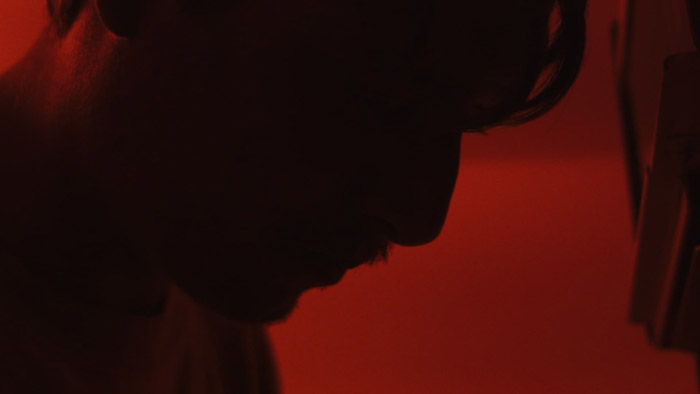
"…is this a story about a man feeling so guilty and/or traumatized by a certain event that he's creating a new narrative for himself?"
